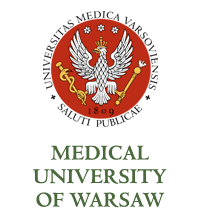You are here
Whole exome sequencing service
Next-generation sequencing (NGS), also known as high-throughput sequencing, allow to sequence DNA much more quickly and cheaply than the previously used Sanger sequencing, and as such have revolutionised the study of genomics and medical genetics. NGS can be used to sequence entire genomes or constrained to specific areas of interest, including whole exome or small numbers of individual genes (panels of selected genes).
Whole exome sequencing is a targeted sequencing approach that is restricted to the protein-coding regions of genomes, called exons, which represents about 3% of the human genome. There are approximately 180 000 exons in the human genome arranged in about 22 000 genes. It is known that most of the variants in human DNA that lead to genetic disorders are located in the exons. Therefore, sequencing of the exome is thought to be an efficient method of analyzing a patient's DNA to discover the genetic cause of diseases or disabilities.
Cancer panel includes genes associated with cancers. Content selection was based on expert curation of the scientific literature and other high-quality resources.
Our service of high-throughput sequencing inlcudes:
Service name | Description | Price (VAT included; PLN) |
Exome test | Testing of whole human exome | 7015.80 |
"Clinical exome" test | Testing of "clinical exome" | 4547.25 |
Cancer panel | Testing of selected genes associated with cancer | 2549.23 |
Custom | Custom service | contact |
All of the services of whole exome sequencing are performed on Illumina HiSeq 1500 platform.
Publications
Our selected publications based on whole exome sequencing:
Kremer LS, Danhauser K, Herebian D, Petkovic Ramadža D, Piekutowska-Abramczuk D, Seibt A, Müller-Felber W, Haack TB, Płoski R, Lohmeier K, Schneider D, Klee D, Rokicki D, Mayatepek E, Strom TM, Meitinger T, Klopstock T, Pronicka E, Mayr JA, Baric I, Distelmaier F, Prokisch H. NAXE Mutations Disrupt the Cellular NAD(P)HX Repair System and Cause a Lethal Neurometabolic Disorder of Early Childhood. Am J Hum Genet. 2016 Oct 6;99(4):894-902.
Smigiel R, Kostrzewa G, Kosinska J, Pollak A, Stawinski P, Szmida E, Bloch M, Szymanska K, Karpinski P, Sasiadek MM, Ploski R. Further evidence for GRIN2B mutation as the cause of severe epileptic encephalopathy. Am J Med Genet A. 2016 Sep 8.
Rydzanicz M, Jagła M, Kosinska J, Tomasik T, Sobczak A, Pollak A, Herman-Sucharska I, Walczak A, Kwinta P, Płoski R. KIF5A de novo mutation associated with myoclonic seizures and neonatal onset progressive leukoencephalopathy. Clin Genet. 2016 Jul 14.
Szczałuba K, Brzezinska M, Kot J, Rydzanicz M, Walczak A, Stawiński P, Werner B, Płoski R. SETD5 loss-of-function mutation as a likely cause of a familial syndromic intellectual disability with variable phenotypic expression. Am J Med Genet A. 2016 Sep;170(9):2322-7.
Alston CL, Compton AG, Formosa LE, Strecker V, Oláhová M, Haack TB, Smet J, Stouffs K, Diakumis P, Ciara E, Cassiman D, Romain N, Yarham JW, He L, De Paepe B, Vanlander AV, Seneca S, Feichtinger RG, Płoski R, Rokicki D, Pronicka E, Haller RG, Van Hove JL, Bahlo M, Mayr JA, Van Coster R, Prokisch H, Wittig I, Ryan MT, Thorburn DR, Taylor RW. Biallelic Mutations in TMEM126B Cause Severe Complex I Deficiency with a Variable Clinical Phenotype. Am J Hum Genet. 2016 Jul 7;99(1):217-27.
Lenk GM, Szymanska K, Debska-Vielhaber G, Rydzanicz M, Walczak A, Bekiesinska-Figatowska M, Vielhaber S, Hallmann K, Stawinski P, Buehring S, Hsu DA, Kunz WS, Meisler MH, Ploski R. Biallelic Mutations of VAC14 in Pediatric-Onset Neurological Disease. Am J Hum Genet. 2016 Jul 7;99(1):188-94.
Pronicka E, Piekutowska-Abramczuk D, Ciara E, Trubicka J, Rokicki D, Karkucińska-Więckowska A, Pajdowska M, Jurkiewicz E, Halat P, Kosińska J, Pollak A, Rydzanicz M, Stawinski P, Pronicki M, Krajewska-Walasek M, Płoski R. New perspective in diagnostics of mitochondrial disorders: two years' experience with whole-exome sequencing at a national paediatric centre. J Transl Med. 2016 Jun 12;14(1):174.
Poninska JK, Bilinska ZT, Franaszczyk M, Michalak E, Rydzanicz M, Szpakowski E, Pollak A, Milanowska B, Truszkowska G, Chmielewski P, Sioma A, Janaszek-Sitkowska H, Klisiewicz A, Michalowska I, Makowiecka-Ciesla M, Kolsut P, Stawinski P, Foss-Nieradko B, Szperl M, Grzybowski J, Hoffman P, Januszewicz A, Kusmierczyk M, Ploski R. Next-generation sequencing for diagnosis of thoracic aortic aneurysms and dissections: diagnostic yield, novel mutations and genotype phenotype correlations. J Transl Med. 2016 May 4;14(1):115.
Ciara E, Rokicki D, Halat P, Karkucińska-Więckowska A, Piekutowska-Abramczuk D, Mayr J, Trubicka J, Szymańska-Dębińska T, Pronicki M, Pajdowska M, Dudzińska M, Giżewska M, Krajewska-Walasek M, Książyk J, Sperl W, Płoski R, Pronicka E. Difficulties in recognition of pyruvate dehydrogenase complex deficiency on the basis of clinical and biochemical features. The role of next-generation sequencing. Mol Genet Metab Rep. 2016 Apr 18;7:70-6.
Mierzewska H, Rydzanicz M, Biegański T, Kosinska J, Mierzewska-Schmidt M, Ługowska A, Pollak A, Stawiński P, Walczak A, Kędra A, Obersztyn E, Szczepanik E, Płoski R. Spondyloepimetaphyseal dysplasia with neurodegeneration associated with AIFM1 mutation - a novel phenotype of the mitochondrial disease. Clin Genet. 2016 Apr 22.
Szymańska E, Rokicki D, Wątrobinska U, Ciara E, Halat P, Płoski R, Tylki-Szymańka A. Pediatric patient with hyperketotic hypoglycemia diagnosed with glycogen synthase deficiency due to the novel homozygous mutation in GYS2. Mol Genet Metab Rep. 2015 Aug 24;4:83-6.
Jezela-Stanek A, Ciara E, Piekutowska-Abramczuk D, Trubicka J, Jurkiewicz E, Rokicki D, Mierzewska H, Spychalska J, Uhrynowska M, Szwarc-Bronikowska M, Buda P, Said AR, Jamroz E, Rydzanicz M, Płoski R, Krajewska-Walasek M, Pronicka E. Congenital disorder of glycosylphosphatidylinositol (GPI)-anchor biosynthesis--The phenotype of two patients with novel mutations in the PIGN and PGAP2 genes. Eur J Paediatr Neurol. 2016 May;20(3):462-73.
Ścieżyńska A, Oziębło D, Ambroziak AM, Korwin M, Szulborski K, Krawczyński M, Stawiński P, Szaflik J, Szaflik JP, Płoski R, Ołdak M. Next-generation sequencing of ABCA4: High frequency of complex alleles and novel mutations in patients with retinal dystrophies from Central Europe. Exp Eye Res. 2016 Apr;145:93-9.
Zmyslowska A, Borowiec M, Antosik K, Ploski R, Ciechanowska M, Iwaniszewska B, Jakubiuk-Tomaszuk A, Janczyk W, Krawczynski M, Salmonowicz B, Stelmach M, Mlynarski W. Genetic evaluation of patients with Alström syndrome in the Polish population. Clin Genet. 2015 Aug 18.
Wortmann SB, Ziętkiewicz S, Kousi M, Szklarczyk R, Haack TB, Gersting SW, Muntau AC, Rakovic A, Renkema GH, Rodenburg RJ, Strom TM, Meitinger T, Rubio-Gozalbo ME, Chrusciel E, Distelmaier F, Golzio C, Jansen JH, van Karnebeek C, Lillquist Y, Lücke T, Õunap K, Zordania R, Yaplito-Lee J, van Bokhoven H, Spelbrink JN, Vaz FM, Pras-Raves M, Ploski R, Pronicka E, Klein C, Willemsen MA, de Brouwer AP, Prokisch H, Katsanis N, Wevers RA. CLPB mutations cause 3-methylglutaconic aciduria, progressive brain atrophy, intellectual disability, congenital neutropenia, cataracts, movement disorder. Am J Hum Genet. 2015 Feb 5;96(2):245-57.
Cottenie E, Kochanski A, Jordanova A, Bansagi B, Zimon M, Horga A, Jaunmuktane Z, Saveri P, Rasic VM, Baets J, Bartsakoulia M, Ploski R, Teterycz P, Nikolic M, Quinlivan R, Laura M, Sweeney MG, Taroni F, Lunn MP, Moroni I, Gonzalez M, Hanna MG, Bettencourt C, Chabrol E, Franke A, von Au K, Schilhabel M, Kabzińska D, Hausmanowa-Petrusewicz I, Brandner S, Lim SC, Song H, Choi BO, Horvath R, Chung KW, Zuchner S, Pareyson D, Harms M, Reilly MM, Houlden H. Truncating and missense mutations in IGHMBP2 cause Charcot-Marie Tooth disease type 2. Am J Hum Genet. 2014 Nov 6;95(5):590-601.
Kostera-Pruszczyk A, Kosinska J, Pollak A, Stawinski P, Walczak A, Wasilewska K, Potulska-Chromik A, Szczudlik P, Kaminska A, Ploski R. Exome sequencing reveals mutations in MFN2 and GDAP1 in severe Charcot-Marie-Tooth disease. J Peripher Nerv Syst. 2014 Sep;19(3):242-5.
Ołdak M, Ruszkowska E, Pollak A, Sobczyk-Kopcioł A, Kowalewski C, Piwońska A, Drygas W, Płoski R. A note of caution on the diagnosis of Martin-Probst syndrome by the detection of the p.D59G mutation in the RAB40AL gene. Eur J Pediatr. 2015 May;174(5):693-6.
Ołdak M, Ścieżyńska A, Młynarski W, Borowiec M, Ruszkowska E, Szulborski K, Pollak A, Kosińska J, Mueller-Malesińska M, Stawiński P, Szaflik JP, Płoski R. Evidence against RAB40AL being the locus for Martin-Probst X-linked deafness-intellectual disability syndrome. Hum Mutat. 2014 Oct;35(10):1171-4.
Ploski R, Pollak A, Müller S, Franaszczyk M, Michalak E, Kosinska J, Stawinski P, Spiewak M, Seggewiss H, Bilinska ZT. Does p.Q247X in TRIM63 cause human hypertrophic cardiomyopathy? Circ Res. 2014 Jan 17;114(2):e2-5.

